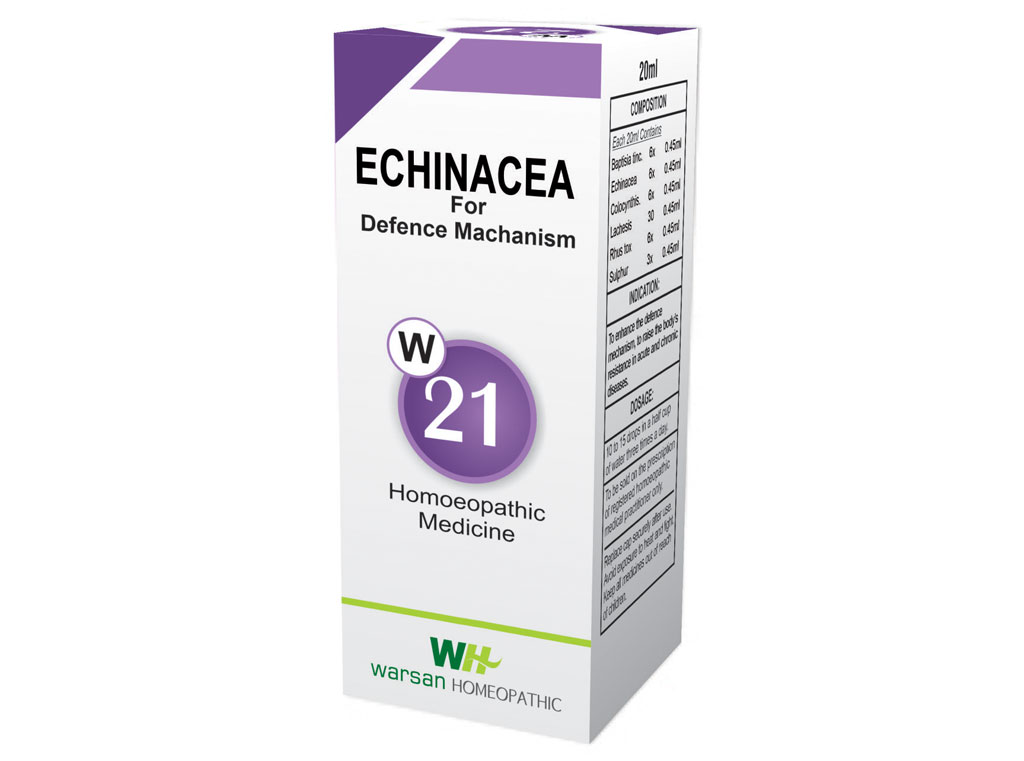Are you looking for a natural way to enhance your immune system and stay healthier throughout the year? In today’s world, where viruses and infections are more prevalent, maintaining a strong immune system has never been more important. While there are many supplements on the market promising immune system support, one natural remedy that has stood the test of time is Echinacea.
Known for its powerful immune-boosting properties, Echinacea has been used for centuries as a natural medicine to support overall health. If you’re curious about how Echinacea can help strengthen your immune system and improve your well-being, you’ve come to the right place.
In this blog, we’ll explore what Echinacea is, how it works to support your immune system, and why you should consider adding it to your daily wellness routine.
What Is Echinacea, and Why Is It So Effective for Immune System Support?
Echinacea is a flowering plant native to North America, often called purple coneflower due to its characteristic purple petals. It’s a member of the daisy family and has been used for centuries by Native American tribes to treat various ailments, including infections, wounds, and colds.
The plant contains several active compounds, including alkamides, glycoproteins, flavonoids, and caffeic acid derivatives, that work together to boost the immune system. The root, stem, and flowers of the Echinacea plant all have medicinal value, but the most potent part is often considered to be the root.
So, why is Echinacea so effective for immune system support? Its primary mechanism is stimulating the activity of immune cells such as macrophages, natural killer cells, and T-cells. These cells help the body recognize and fight off pathogens like bacteria, viruses, and fungi. Echinacea also supports the production of cytokines, which are proteins that regulate immune responses, further strengthening the body’s defense system.
How Does Echinacea Enhance Immune Function?
Echinacea is commonly used to boost the immune system and reduce the severity and duration of common illnesses such as colds and flu. Here’s how it works to provide immune system support:
- Activates Immune Cells: Echinacea is known to enhance the activity of immune cells like macrophages and neutrophils, which are responsible for detecting and neutralizing pathogens. These cells are part of the body’s first line of defense against infections, and Echinacea helps to increase their response, making it easier for the body to fight off illness.
- Stimulates Antibody Production: Antibodies are proteins produced by the immune system that specifically target harmful invaders. Echinacea helps stimulate the production of IgG antibodies, which are key in neutralizing pathogens. This is especially beneficial when your body is exposed to new viruses or bacteria.
- Reduces Inflammation: Chronic inflammation can weaken the immune system and contribute to many health problems. Echinacea has anti-inflammatory properties that help reduce this harmful inflammation, promoting a healthy immune response. By reducing inflammation, Echinacea ensures that the immune system can focus on fighting infections rather than being overwhelmed by constant inflammation.
- Enhances White Blood Cell Activity: White blood cells play an essential role in identifying and destroying pathogens. Echinacea boosts the number and activity of T-cells and natural killer cells, which are essential for destroying infected cells and protecting the body from diseases.
- Supports the Lymphatic System: The lymphatic system is responsible for filtering and removing toxins and waste products from the body. Echinacea helps stimulate lymphatic function, improving the body’s ability to eliminate waste and fight off infections effectively.
Warsan No. 21(Echinacea) 20ml
How Can Echinacea Help Prevent Colds and Other Respiratory Infections?
One of the most popular uses of Echinacea is to help prevent colds and respiratory infections. Studies suggest that regular use of Echinacea can reduce the frequency of colds and may also decrease the severity and duration of symptoms once a cold has set in.
Echinacea works in several ways to help protect against respiratory infections:
- Boosts First-Line Defenses: Echinacea stimulates the body’s first-line defenses against infections, such as the mucous membranes in the nasal passages, throat, and lungs. This helps prevent the entry of harmful bacteria or viruses, reducing the chances of contracting a cold or flu.
- Fights Inflammation in the Respiratory Tract: Echinacea’s anti-inflammatory properties help soothe the inflammation in the respiratory system that can result from infections. By reducing inflammation, Echinacea promotes easier breathing and faster recovery from respiratory illnesses.
- Shortens Recovery Time: In cases where a cold or respiratory infection does occur, studies have shown that Echinacea can shorten the duration of symptoms. It reduces the severity of congestion, sore throat, and coughing, allowing you to recover more quickly.
- Strengthens the Immune System: Echinacea supports the immune system, helping it recognize and destroy pathogens before they can cause serious harm. Regular use of Echinacea can enhance your immune system’s ability to prevent respiratory infections.
Can Echinacea Help with Other Immune-Related Conditions?
In addition to helping with common colds and respiratory infections, Echinacea can also offer immune system support in other areas. It’s been shown to help with conditions such as:
- Urinary Tract Infections (UTIs): Echinacea’s antimicrobial properties make it effective in preventing and treating UTIs. It helps prevent bacterial growth and reduces the pain and discomfort associated with urinary tract infections.
- Skin Infections: Echinacea has been used in herbal medicine to treat minor wounds, burns, and skin infections. It helps speed up the healing process, reduce inflammation, and fight bacterial or fungal infections on the skin.
- Chronic Infections: Some studies have suggested that Echinacea may help manage chronic infections, such as sinusitis or chronic bronchitis, by boosting the immune response and reducing inflammation in the affected areas.
- Immune System Support in Autoimmune Conditions: While more research is needed, some studies suggest that Echinacea may support immune function in autoimmune diseases, where the immune system mistakenly attacks healthy tissues. By boosting immune function in a regulated way, Echinacea could help in managing autoimmune conditions.
How Should You Use Echinacea for Maximum Immune Support?
Echinacea is available in various forms, making it easy to incorporate into your daily routine for immune system support. Some common forms include:
- Echinacea Tea: One of the simplest ways to enjoy the benefits of Echinacea is by drinking it as a tea. You can brew fresh Echinacea leaves or use Echinacea tea bags available in health stores.
- Echinacea Capsules or Tablets: Echinacea supplements in the form of capsules or tablets are an easy way to get a consistent dose of this herb. It’s important to follow the recommended dosage on the packaging or consult with a healthcare provider for the appropriate amount.
- Echinacea Tincture: Echinacea tinctures are liquid extracts made from the Echinacea plant. You can take them directly or add them to water or juice. The tincture form is often more concentrated and provides quicker absorption into the bloodstream.
- Echinacea Extract: Similar to tinctures, Echinacea extracts provide concentrated doses of the herb and can be taken in small amounts, typically added to water, smoothies, or other beverages.
- Echinacea-Infused Topicals: For skin infections or wounds, you can find Echinacea-infused creams or ointments that help speed up healing and fight infection.
How Much Echinacea Should You Take for Immune Support?
The appropriate dosage of Echinacea depends on the form you are using and the specific health needs you have. As a general guideline:
- For prevention of colds, take 300-500 mg of Echinacea extract or tincture daily.
- For acute infections, higher doses may be required, typically 600-1,000 mg per day. However, it’s essential to consult with a healthcare provider to determine the correct dosage for your specific needs.
It’s important to note that Echinacea is usually used for short-term periods, especially during illness or when trying to prevent infections. Long-term use should be avoided unless recommended by a healthcare professional.
Are There Any Side Effects or Precautions to Consider?
Echinacea is generally considered safe for most people when used as directed. However, some individuals may experience mild side effects, including:
- Mild gastrointestinal upset
- Skin rashes or allergic reactions (especially for those allergic to plants in the Asteraceae family, such as ragweed)
- Dizziness or headaches in rare cases
If you are pregnant, breastfeeding, or taking medications that affect the immune system, it’s important to consult a healthcare provider before using Echinacea. People with autoimmune disorders should also seek medical advice before using Echinacea, as it may stimulate the immune system.
Conclusion
Echinacea is a powerful, natural solution for immune system support, offering a safe and effective way to boost your immunity and protect yourself from common illnesses. Whether you are looking to prevent colds, reduce the severity of infections, or simply enhance your overall health, Echinacea provides a versatile and time-tested option. With its ability to activate immune cells, reduce inflammation, and support the body’s natural defenses, Echinacea can be a valuable addition to your wellness routine. Always consult with a healthcare provider to determine the right dosage and ensure that it’s suitable for your specific needs.
High-Quality Pipes & Fittings – Built to Last
Frequently Asked Questions (FAQs)
While Echinacea may not prevent the flu entirely, it can help reduce the severity and duration of flu symptoms by supporting the immune system.
Most people begin to feel the effects of Echinacea within a few hours to a couple of days, depending on their specific health needs and the form in which it is taken.
Echinacea is typically used for short periods to support the immune system, especially during cold and flu season. Long-term use should be avoided unless directed by a healthcare provider.
Echinacea is generally safe for children in appropriate doses. However, it’s important to consult a pediatrician before giving Echinacea to children, especially if they have any underlying health conditions.
Yes, Echinacea can be combined with other immune-boosting supplements like vitamin C, zinc, or elderberry. However, it’s important to talk to your healthcare provider about the best combination for your needs.


